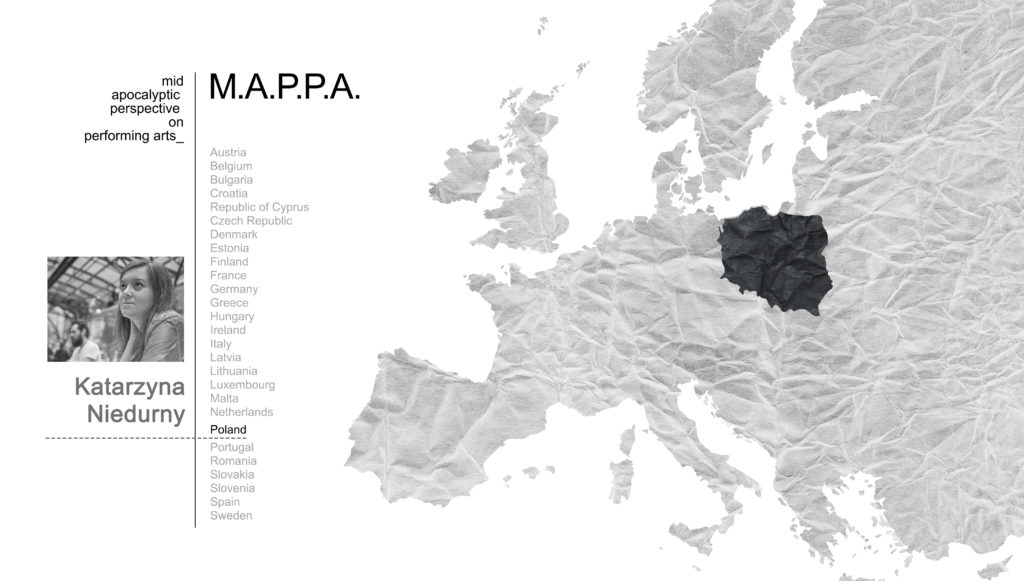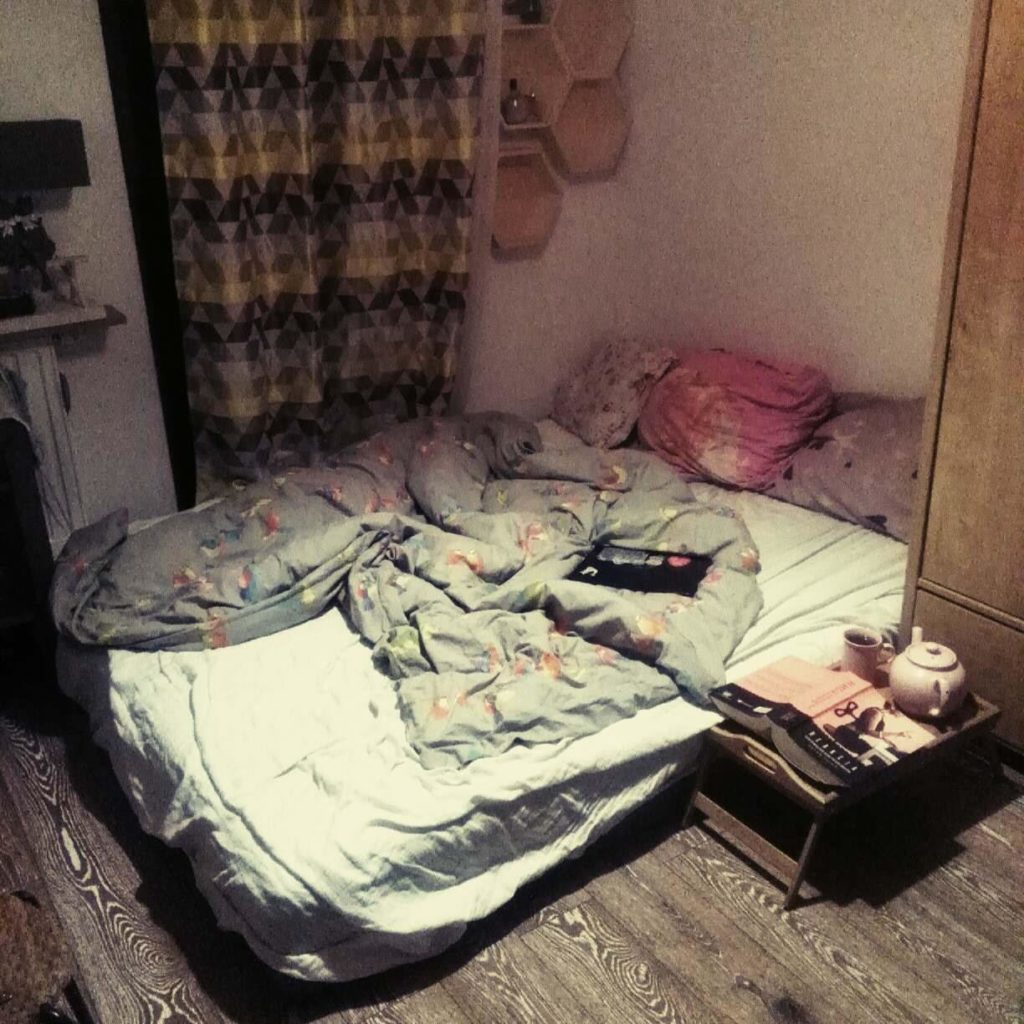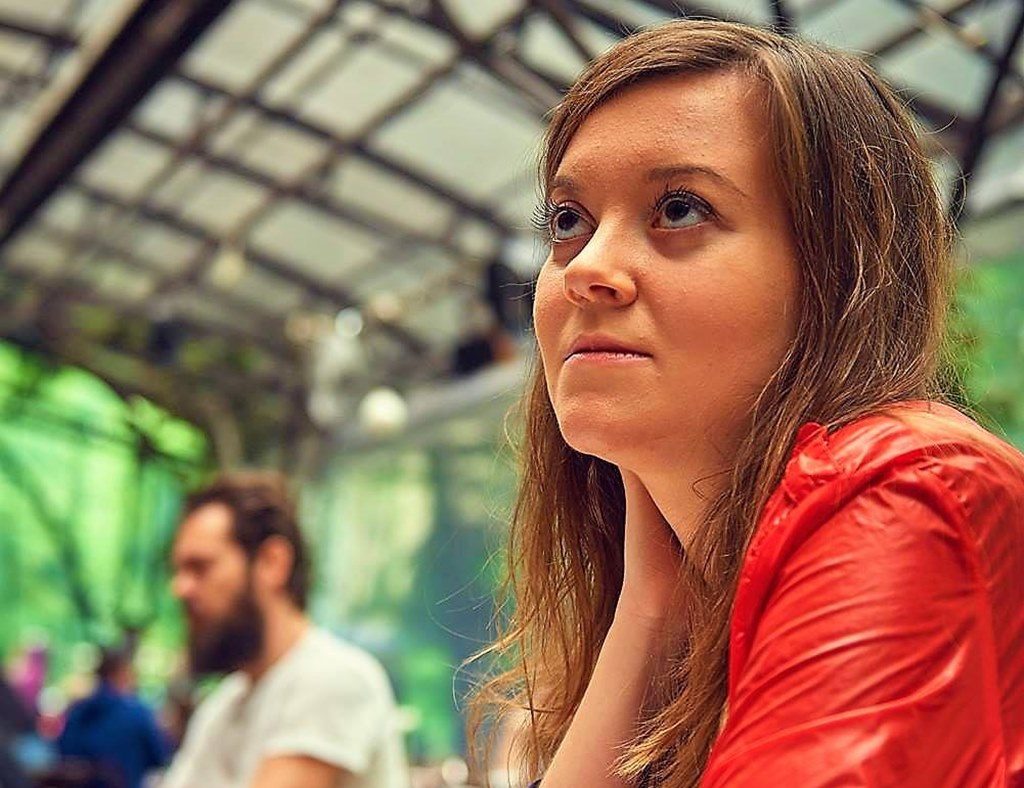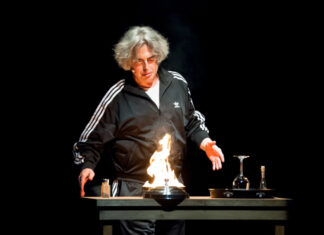
M.A.P.P.A. è un progetto di ricognizione e mappatura internazionale sulla critica dedicata alle performing arts. Abbiamo intervistato giovani giornalisti, osservatori e critici provenienti da tutta Europa.
Leggi altre interviste del progetto M.A.P.P.A.
Katarzyna Niedurny è una giornalista teatrale di Cracovia. Collabora regolarmente con la webzine dwutygodnik.com e con la rivista Didaskalia, periodico culturale della prestigiosa Università Jagellonica, pubblicato dal Jerzy Grotowski Institute di Breslavia. Katarzyna si occupa di arti performative, culture femministe, studi di genere e queer theory.
Quali misure sono state prese a sostegno dei lavoratori dello spettacolo in Polonia?
Sono stati implementati vari aiuti finanziari per gli artisti, come un assegno una tantum per coloro la cui situazione finanziaria è decisamente peggiorata con le conseguenze dell’epidemia. Purtroppo, si parla di cifre basse. È stato attivato il programma ministeriale “Culture on the Web”, che finanzia progetti online. Ci sono alcuni interessanti programmi comunali a Varsavia, Cracovia, Katowice. O quelli della Biennale di Varsavia. Ma con questi fondi non si può aiutare tutti. Da più parti si è fatto notare come l’aiuto vincolato alla produzione, o a un concorso, non sia la migliore pratica: a causa dell’epidemia, siamo più deboli e meno creativi. Inoltre ho l’impressione che in questi progetti gli artisti siano in prima linea, mentre formatori, critici e organizzatori vengano lasciati da parte. Invece anche queste figure professionali stanno avendo il loro problemi in questo momento.
Quali sono le prospettive per la ripresa delle attività teatrali, spettacoli e prove?
Le prove sono di nuovo consentite. Biblioteche, gallerie e musei hanno già riaperto sotto il “nuovo regime sanitario”, ma non sappiamo quando riapriranno i teatri. Il Theatre Institute ha sviluppato, insieme all’Istituto di Musica e Danza e a rappresentanti del Ministero della Cultura, le linee guida per il ritorno alla normalità, ma non abbiamo ancora un data. Gli ottimisti parlano di una riprogrammazione degli spettacoli a partire da settembre, i pessimisti indicano l’anno venturo. Intanto, molte istituzioni preferiscono sopravvivere pagando solo gli impiegati a tempo pieno, non producendo nulla di nuovo. Il che è ovviamente un problema per tutti i freelancers.
Il periodo del lockdown ha visto molti teatri e compagnie pubblicare su internet parte dei loro archivi. Molte sono anche le performance nate online, così come si parla sempre più di residenze digitali. Persino i festival, luoghi di incontro per eccellenza, stanno proponendo un cartellone digitale. Come ti relazioni a questa modalità di fruizione?
In generale sono contenta che il teatro online funzioni: la pubblicazione delle performance online ci dà la possibilità di sentirci vicini. Per una parte del pubblico ora è possibile vedere spettacoli prima proibitivi per i costi dei biglietti, per non parlare delle distanze geografiche. Credo che questa debba essere la norma per i teatri pubblici. Allo stesso tempo, almeno in Polonia, questi contenuti hanno invaso la rete all’improvviso: è persino dura stare dietro a tutti questi spettacoli. Alcuni critici invitano a rallentare questa corsa all’upload, specialmente da quando i teatri hanno cominciato a gareggiare su chi avrebbe avuto più visualizzazioni, vantandosi poi dei risultati. Ma non credo sia il tempo della competizione. Ci sono poi progetti nati specificamente online: è interessante osservarli, protrarre questo rapporto con la vita teatrale, ma credo si tratti di forme temporanee, che servono a sopravvivere durante la pandemia: per guadagnare, o rimanere vicini. Ma poi, dopo il Coronavirus, ci scorderemo di queste pratiche e torneremo a stare vicini, di persona.
Quali sono state le pratiche performative più interessanti durante i giorni del lockdown, su un piano di temi, linguaggi, modalità di presenza, dal tuo punto di vista?
Prendendo spunto dal fatto che molti artisti hanno lamentato la difficoltà a restare seduti a casa, isolati, un gruppo di performer con disabilità ha preparato un progetto: in un breve video, scherzano sulle lementele per l’isolamento temporaneo, e si mettono a insegnare come rimanere tutto il tempo a casa: «We will teach you to sit at home. Many of us do it professionally!». Nel progetto si fa anche cenno all’importante Progetto Quarantena (Projekt kwarantanna) dello Studio Theatre (uno dei centri più importanti di sperimentazione teatrale di Varsavia, attivo dal 1955, ndr), al quale nessun artista con disabilità era stato invitato. È stato importante farlo notare.
Credi che questa crisi cambierà profondamente i linguaggi, gli spazi, i temi delle arti performative, anche riguardo alla compresenza di attori o performer e pubblico nello stesso spazio-tempo?
Temo che dopo la pandemia vedremo molti spettacoli che parlano di Coronavirus. Ho l’impressione che, nonostante la portata degli avvenimenti mondiali, il privato riservi un’esperienza noiosa. Siamo seduti a casa, fuori è tutto chiuso. Non succede nulla. La sfida per gli artisti è quella di lavorare in una comunità ristretta, entro regole ben definite. Il problema di rendere i teatri dei luoghi sicuri metterà sicuramente in discussione la forma delle performance. Come? Difficile dirlo ora, ma spero che l’esperienza della pandemia abbia occasione di spostare il modo di lavorare delle istituzioni in senso ecologico, democratico, puntato all’uguaglianza e all’emancipazione.
È possibile vivere del mestiere della critica in Polonia? L’attuale situazione ha creato ulteriori difficoltà nel settore?
In Polonia è molto difficile guadagnarsi da vivere come critico. Diciamo pure impossibile. La maggioranza dei colleghi riceve compensi simbolici per le recensioni, senza il regolare contratto di un lavoro di redazione. Quindi scrivere di teatro è un extra; i più sono al contempo giornalisti, docenti universitari, lavoratori culturali di altra sorta. La situazione professionale è da tempo talmente complicata che la crisi non poteva nemmeno peggiorarla.
Che cosa ti manca di più della liveness delle arti performative?
La sensazione di essere qui e ora, guardandolo solo la performance. È un esperienza altra dalla vita quotidiana.

Katarzyna Niedurny is a journalist and reviewer based in Krakow, editor of the webzine dwutygodnik.com and the magazine Didaskalia. She writes about theater, culture, feminism, gender studies, and queer theory.
What are the measures overtaken by the Polish government, or by the local institutions, in support of the theatre workers?
In Poland, there are several ways to give financial help to the artists. Allowances were paid out for those whose financial situation had worsened due to the pandemic. However, they were low. There is also a program promoted by the Ministry of Culture, “Culture on the Web”, wihich offers scholarships for worth projects. Similar initiatives appear in larger cities: Warsaw, Katowice, Krakow. Institutions such as the Warsaw Biennale also run their scholarship funds. But you cannot help everyone that way. Many people indicate that help in the form of competition is not the best idea in the current situation. Because of the pandemic, we are more sensitive, yet less creative. I also have the impression that in these projects the artists stand out in the first place: educators, theater critics, curators are often forgotten. These professional groups now also have problems.
What is the perspective about the reopening of theatres, both for plays and rehersal?
Libraries, galleries and museums have already been opened in the frame of the “new sanitary regime”. but we don’t know when the playhouses will be opened. The only activity that can take place is the rehearsals. Meanwhile, the Theater Institute, together with the Institute of Music and Dance and a representative of the Ministry of Culture, has developed guidelines to return to normality. Anyway, optimists are replanning premieres for September, pessimists say that maybe next year… This uncertainty poses questions over savings, too. This year, many institutions prefer to survive by paying only full-time employees and not by producing new projects. This is obviously a big problem for the freelancers.
During the lockdown many theatres and companies published part of their archives on the Internet. Also, we have been watching many digital performances, as well as there has been an intensive talking about “digital residences”. Even the festivals, that can be seen as the most evident meeting places, are proposing a digital billboard. How do you relate to this way of enjoying the performing arts?
Of course, I’m glad that online theater is working. The act of diffusing recordings of performances lets the community the option to catch up. For a larger group of viewers, it is possible to see performances that were difficult to attend due to ticket prices or the actual distance from the playhouse. To be honest, I think this should be the normal practice of public theatres – publishing video-feeds of the performance on the Web. In Poland, a lot of these recordings suddenly hit the network: it’s hard to keep up with it. Some critics thought that a slow-dow was necessary. Especially since the fact that the theatres began to compete with each other, about whose recording will be watched by more people, then boasting about the results. I don’t think this is a good time for any form of competition. Also, certain online projects made by performers were made during the pandemic. They can be enjoyable to watch; they provide some kind of contact with the theatrical goings on, but I think they are temporary forms that just help the environment to survive: making money, allowing the members of the community to keep in touch. I think we are going to forget about them after Coronavirus, when we’ll be back to our own life.
The most interesting alternative theatrical practices you have experienced in these days.
Since many artists commented on how difficult it is to sit at home, talked about the problem of isolation, a group of performers with disabilities prepared their project. In a short video, the artists made a joke about complaining about temporary isolation due to Coronavirus and promise that they will teach us how to stay at home. It was very refreshing. This project also referred to the larger Project Quarantine at the Studio Theater, to which no artist with disabilities was invited thanks to this project, this institutional exclusion was pointed out.
Do you think that this crisis will profoundly change the languages, spaces, themes of the performing arts, also with regard to the co-presence of actors or performers and the audience in the same space-time?
I am a little afraid that after the epidemic all the performances will be about Coronavirus. I have the impression that, despite how much is happening in the world, private life can be perceived as a boring experience. We are sitting at home, everything is closed, nothing happens. The challenge for the creators will be working in front of a small audience, enforced by the rules. The question of how to make theatre safe for health will definitely affect the form of performances. How? It’s hard to say now. I hope that the pandemic experience will see itself transformed into the way the institutions work: they must become more ecological, democratic, emancipatory, and equality.
Is it possible to make a life out of theatre criticism in Poland? Is there any particular trouble due to the current crisis for the critics?
In Poland, it is very difficult to make a living only out of theater criticism. It is rather almost impossible. Most of the critics receive a symbolic compensation for reviews. They are not employed as full-time editors. Writing reviews is more like an extra job. Theatre critics are at the same time journalists, university lecturers, or they work in the cultural field in other ways. The situation in this profession has been difficult for so long that the epidemic was not able to make it worse.
What do you miss the most from live performances and plays?
The feelings of being in the “here and now”, and just watching a performance. That it is a different experience than everyday life.
Leggi altre interviste del progetto M.A.P.P.A.












